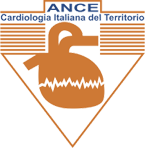Objectives The aim of this study was to describe current practice regarding completeness of revascularization in patients with multivessel disease undergoing percutaneous coronary intervention (PCI) and to investigate the association of incomplete revascularization (IR) with death, repeat revascularization, and myocardial infarction (MI) in a large nationwide registry.
Background The benefits of multivessel PCI are controversial.
Methods Between 2006 and 2010 we identified 23,342 patients with multivessel disease in the SCAAR (Swedish Coronary Angiography and Angioplasty Registry) and merged data with official Swedish health data registries. IR was defined as any nontreated significant (60%) stenosis in a coronary artery supplying >10% of the myocardium.
Results Patients with IR (n = 15,165) were older, had more extensive coronary disease, and more often had ST-segment elevation MI at presentation than those with complete revascularization (CR) (n = 8,177). All-cause 1-year mortality, MI, and repeat revascularization were higher in IR than CR: 7.1% versus 3.8%, 10.4% versus 6.0%, and 20.5% versus 8.5%, respectively. Propensity score methodology was used in the adjusted analyses. Adjusted hazard ratio (HR) for the composite of death, MI, or repeat revascularization at 1 year was higher in IR than CR: 2.12 (95% confidence interval [CI]: 1.98 to 2.28; p < 0.0001). Adjusted HR for death and the combination of death/MI were 1.29 (95% CI: 1.12 to 1.49; p = 0.0005) and 1.42 (95% CI: 1.30 to 1.56; p < 0.0001), respectively.
Conclusions Incomplete revascularization at the time of hospital discharge in patients with multivessel disease undergoing PCI is associated with a high risk of recurrent 1-year adverse cardiac events.
J Am Coll Cardiol Intv. 2016;9(3):207-215. doi:10.1016/j.jcin.2015.10.034
